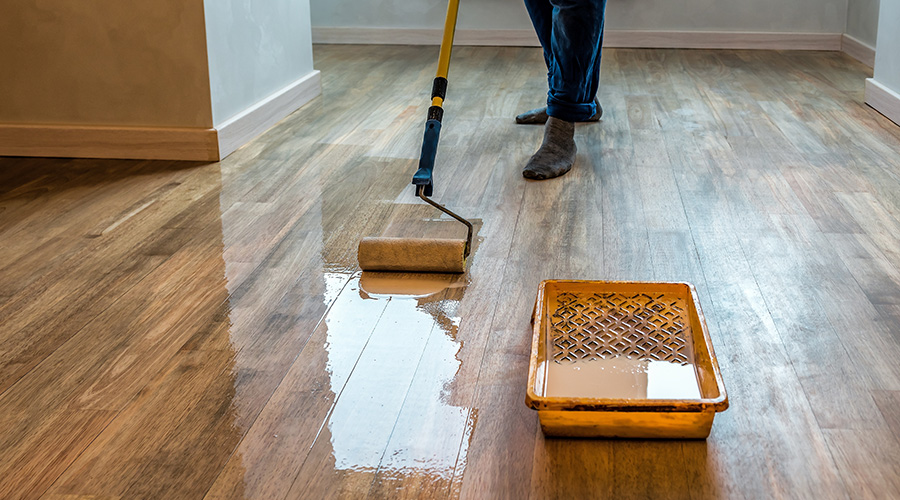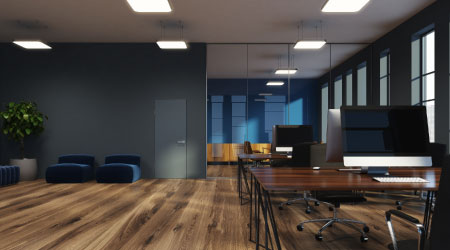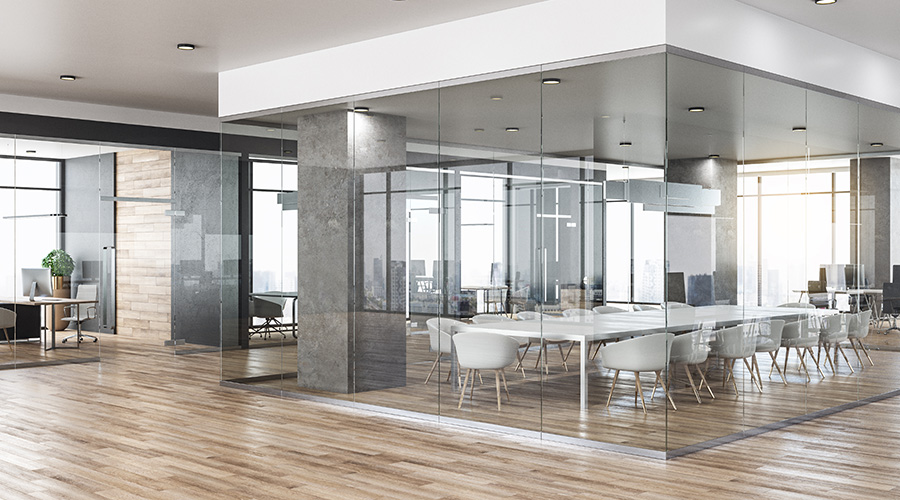Concrete and Masonry Issues with Floor Coatings
Concrete and masonry issues
Concrete flooring is porous and needs protection. Sealers for concrete surfaces include:
Penetrating coatings. Silanes, siloxanes, and silicates penetrate and react with concrete capillaries to shield against moisture and deicing chemicals. Workers can apply them to exterior or interior concrete surfaces that are subject to corrosion or freeze-thaw damage, and they can provide a natural matte finish.
Acrylic coatings. These coatings, either solvent- or water-based exterior and interior products, leave a glossy coating that enhances color, dries in about an hour, are economical, is easy to apply, and provides protection against water and chloride intrusion. But they can wear faster than other coatings.
Epoxy coatings. These products provide a high-build, two-component, overlay to create a hard, long-wearing, abrasion-resistant, water-repellent surface. Workers need to be careful to avoid trapping water under this impermeable surface.
Polyurethane coatings. These coatings are high-build, work on interior or exterior surfaces, provide good abrasion resistance for high-traffic areas, and are twice as thick as acrylic coatings.
Masonry flooring can give a facility a professional look while providing a durable surface for interior walkways, reception areas, driveways and patios. One challenge for managers is that brick pavers are subject to color fading and staining from dirt, leaves, oil, grease, rust, efflorescence, mold, mildew, algae, and fallout from exhaust fumes and dust. Cleaners need to remove these discolorations to bring back the original, natural color.
After cleaning the pavers, workers can apply a water- or solvent-based sealer to enhance the color, provide gloss, and protect the surface. Water-based sealers are easier to use, off-gas less, and are easier to clean up. Some sealers are better for penetration power and a natural look than others and are used in areas with heavy traffic.
Special purpose sealers can extend the performance life of concrete and masonry. One example is a silane/siloxane solvent- or water-based chloride blocker, which workers can use where symptoms of spalling show up on a interior concrete floor or outside due to salt and water surface penetration. A salt-blocking penetrating sealer, applied after power washing the floor, can protect concrete and reinforcing steel and add years to the concrete life at a low cost.
Related Topics:














